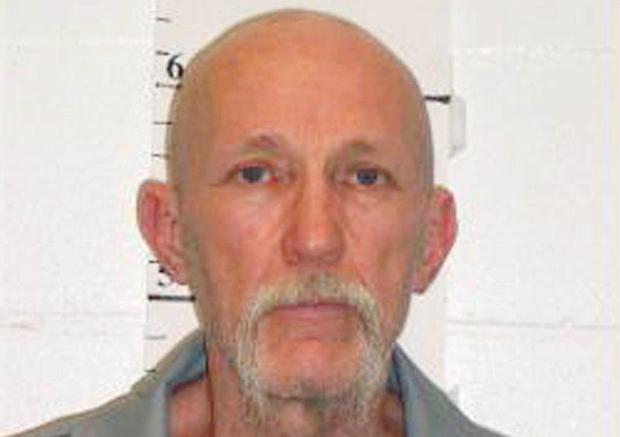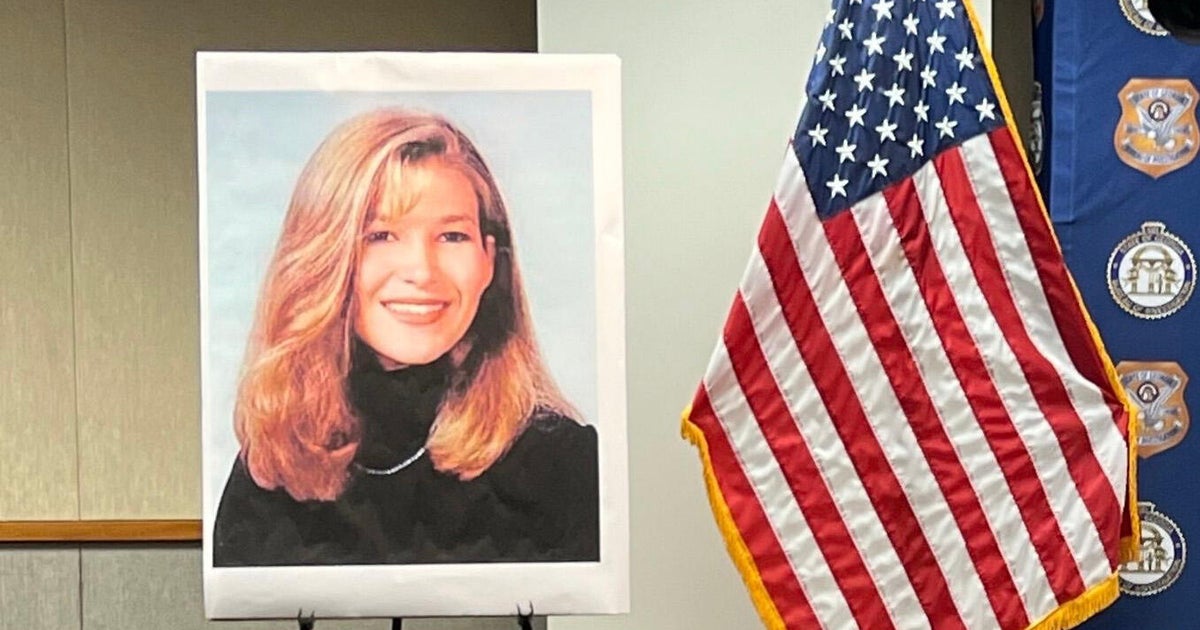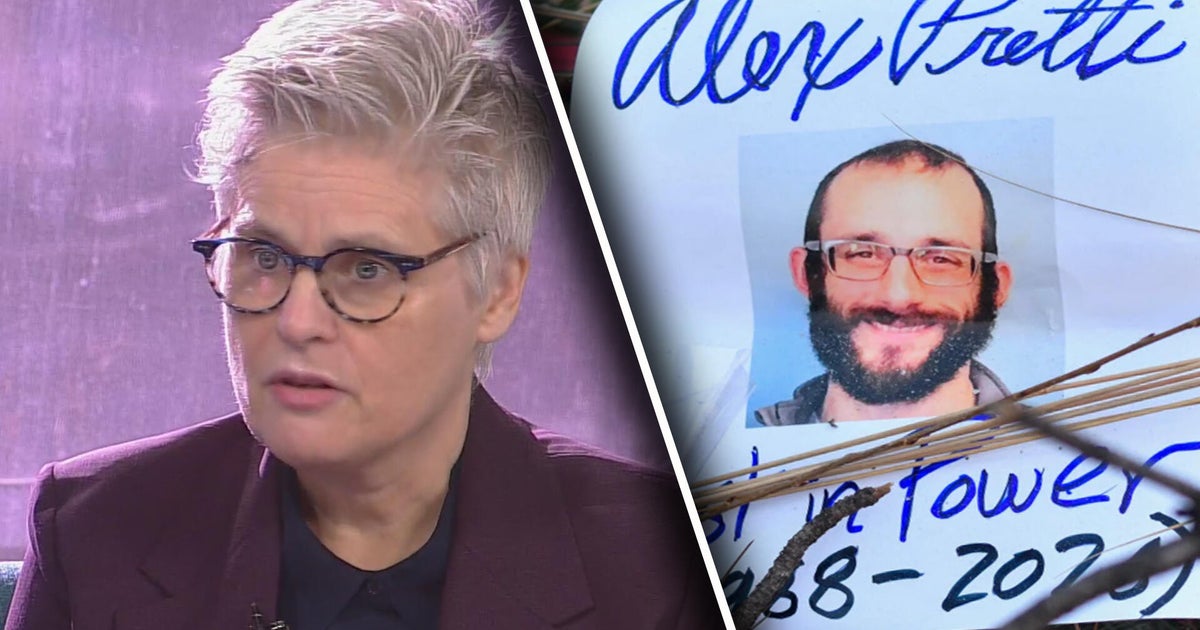Missouri prosecutors' unit that tried inmate scheduled to die is linked to wrongful convictions, Innocence Project says
Editor's Note: Missouri put to death Walter Barton late Tuesday. Read the latest update here. Our earlier story is below.
A former Missouri Attorney General's Office unit that prosecuted a man scheduled to be executed Tuesday has been linked to past wrongful conviction cases, according to a legal aid group that argues there's new evidence supporting the inmate's innocence.
Walter Barton, 64, is scheduled to die after 6 p.m. by lethal injection in Missouri for the 1991 killing of 81-year-old trailer park operator Gladys Kuehler. Barton was granted a 30-day stay of execution Friday by a federal judge, but that decision was thrown out Sunday by the 8th U.S. Circuit Court of Appeals.
Kuehler, an acquaintance of Barton's, was beaten, sexually assaulted and stabbed more than 50 times in the Ozark trailer park where she lived. In a letter issued Friday to Missouri Governor Michael Parson, the Innocence Project, the Midwest Innocence Project and the MacArthur Justice Center argued that Barton's conviction was tied to blood spatter evidence and jailhouse informant testimony that have now both been "fatally undermined."
Those groups, along with the American Bar Association and others, have called on Parson to stay the execution and appoint a special inquiry board to review the case. Parson's office said in a statement released to CBS News the execution is expected to move forward.
"At this time, Governor Parson fully anticipates carrying out the court order and discharging his duties as prescribed by law on May 19," the governor's office said in a statement.
Barton's defense attorneys have appealed to the U.S. Supreme Court, saying their efforts to defend him have "slowed to a crawl" because of the coronavirus restrictions.
Barton's case has been tied up in court for years due to mistrials, appeals and two overturned convictions. He has always maintained his innocence.
He was prosecuted five times between 1993 and 2006 by a special unit under then-Attorney General Jay Nixon which traveled throughout the state to handle death penalty cases with local prosecutors, according to the Innocence Project. The unit had what the Innocence Project calls a "well-established pattern and practice of gravely unethical and unconstitutional tactics."
The Missouri Attorney General's office, now under Attorney General Eric Schmitt, denied that in a statement to CBS News. "We hold our office to the highest ethical standards in pursuing justice for victims, and any suggestion otherwise is unfounded," spokesman Chris Nuelle wrote in an e-mail.
According to the Innocence Project, the unit prosecuted Joshua Kezer, who spent 16 years in prison for the 1992 murder of a nursing student in Benton before being exonerated in 2009. The case relied on a mistaken witness identification and shaky jailhouse informant testimony, according to the National Registry of Exonerations. A Cole County circuit court found that the unit prosecutors "repeatedly misstated" and hid evidence, the Innocence Project wrote.
The unit also prosecuted Dale Helmig, who was exonerated in 2010 and released from prison after serving 17 years in the 1993 murder of his mother in Osage County. A DeKalb County judge ruled that the prosecution withheld Helmig's denial of the killing to a state trooper and allowed the trooper to testify that Helmig never denied the killing, knowing that was false, according to the National Registry of Exonerations.
In addition, the unit tried Mark Woodworth, who was exonerated in 2014 in a 1990 gun ambush that left his neighbor severely wounded and the neighbor's wife dead outside Chillicothe. A court found that a unit prosecutor never disclosed secret letters between himself, the judge and the surviving victim, and police reports that pointed to another possible suspect, according to the National Registry of Exonerations.
Woodworth was prosecuted by the unit twice and served 17 years in jail before he was cleared. In an opinion piece published this week in the Kansas City Star, Woodworth called on Governor Parson to appoint an inquiry board in Barton's case, writing:
"If the attorney general's unit had its way, I would die in prison for a crime I did not commit. The wrongful prosecutions in my case reveal what is at stake when prosecutors forgo their duty to do justice and instead focus on winning at all costs. The multiple attempts by the unit to obtain a conviction and death sentence for Barton is no different."
Barton was one of three people, including the victim's granddaughter, who found her dead in her bedroom on October 9, 1991. When officers questioned Barton about small bloodstains on his clothing, he said he must have gotten the victim's blood on him when he pulled her granddaughter away from the body, the Kansas City Star reported. The granddaughter at first confirmed the account, but later changed her story, according to the paper.
The Innocence Project says crime scene analysis from a defense expert undermines the state's case that small bloodstains found on Barton's clothing were the result of spatter from blows to the victim. The analyst believes whoever killed Kuehler would have been covered in blood, and the bloodstains on Barton's clothing could have been transferred there from the crime scene.
Barton's attorney, Fred Duchardt Jr., said last week that three jurors involved in Barton's 2006 trial now express misgivings based on the blood spatter evidence.
The Innocence Project also says that prosecutors failed to disclose that they had agreed to drop a charge against a jailhouse informant in exchange for her testimony that Barton had told her he would kill her "like he killed that old lady."
"The evidence against Mr. Barton has always been weak and circumstantial — so weak it took the state five tries over the course of 15 years — to convict and sentence him to death," their letter read. "Just two pieces of evidence were used to secure Mr. Barton's conviction, both of which have now been fatally undermined."
The Missouri Attorney General's office, however, argued in court filings that the blood spatter evidence isn't new and that Barton's defense chose not to call the same expert they now rely on at his 2006 trial.
Ron Cleek, a lawyer now in private practice who assisted in Barton's fifth trial as the Christian County prosecuting attorney, told the Kansas City Star that Barton received a fair trial and said the attorney general's lawyers and Barton's attorneys "left no stone uncovered." Cleek told the paper the case was built on solid evidence and he believes strongly in Barton's guilt.
"I wouldn't even think about trying somebody for a homicide, especially not going in for (the) death penalty, unless I believed every bit," he told the Star.
Barton's execution remains scheduled despite concerns about the coronavirus that had led other states to postpone lethal injections, and would be the first in the U.S. since March 5, according to The Associated Press.




